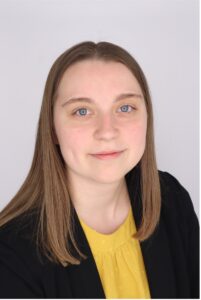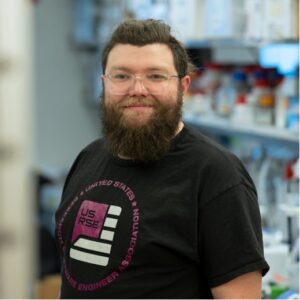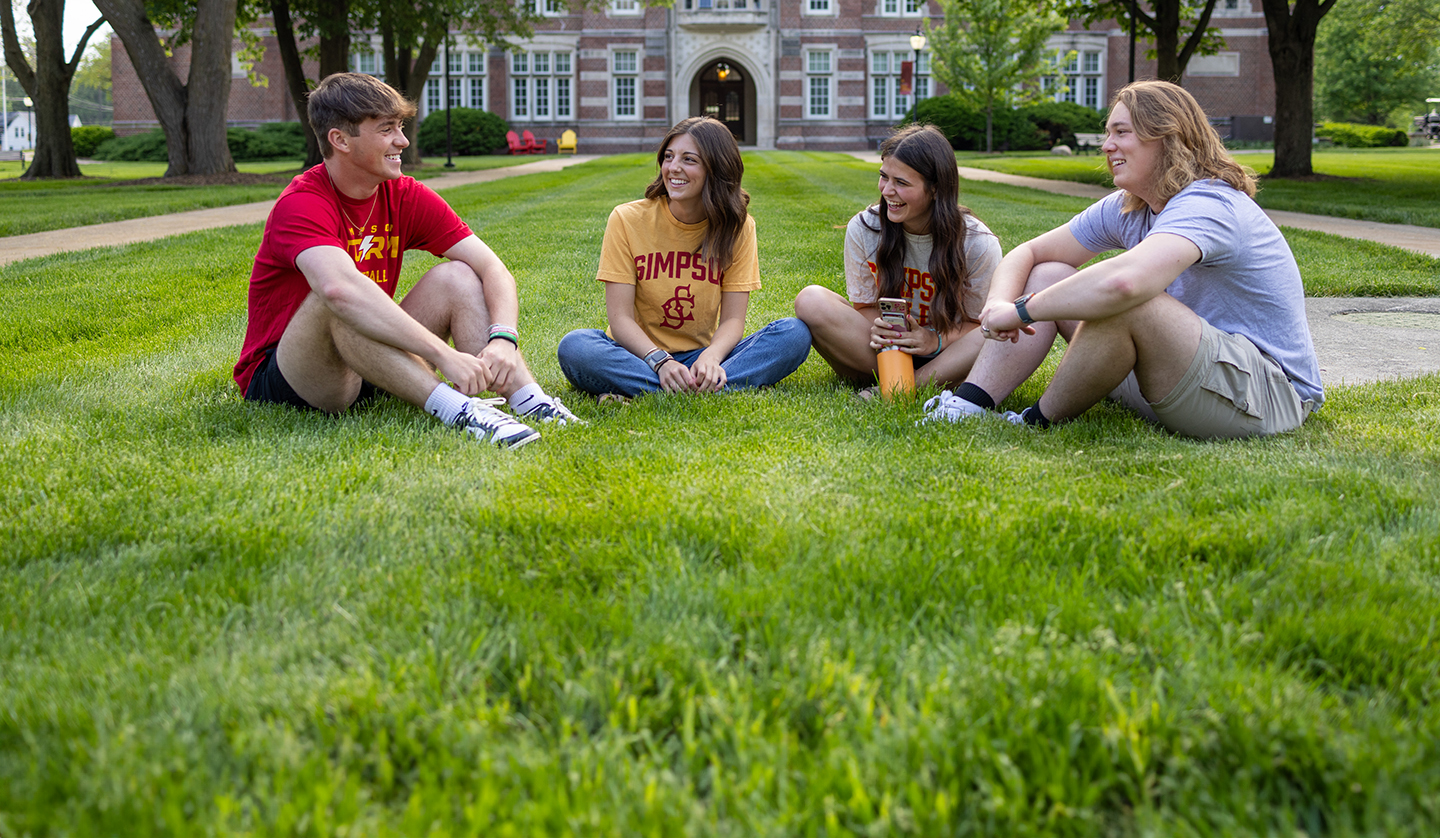Midwest Undergraduate Mathematics Symposium
The 21st annual Midwest Undergraduate Mathematics Symposium (MUMS) will be held on Saturday, April 5, 2025, at Simpson College. The conference will feature contributed talks and poster presentations by undergraduates. Our plenary speakers will be Andrea Van Wyk from Drake University and Mike Henry from the Open Molecular Software Foundation, Open Free Energy Initiative, and Chodera Lab.
Purpose
- Promote student engagement in the mathematical sciences, including projects and research (completed individually or in groups).
- Provide students the opportunity to share and celebrate the work they have completed in the mathematical sciences.
- Introduce students to topics and applications of mathematics that are new to them.
- Inform students about research programs and study abroad opportunities in the mathematical sciences.
- Inform students about career and graduate school opportunities in the mathematical sciences.
Schedule
Unless otherwise noted, all events will take place in Kent Campus Center Hubbell Hall II.
View or download the full PDF schedule.
9:30AM – Registration and Poster Session set-up
10:00AM – Morning Plenary Address: Andrea Van Wyk
11:00AM – Break
11:15AM – Student Posters (Hubbell Hall I)
12:00PM – Lunch (On your own)
1:30PM – Career panel
2:30PM – Student Talks
- 2:30PM Raquel Liedtke and Jenna Steffl (Drake University): Mitigating the Spread of Hospital Acquired Infections through Nursing Model: An Agent Based Modeling Study
- 2:50 Matthew Dietrich, Rachel Garcia, Caelynn Obleton, and Lanie Shettlesworth (Simpson College): Is the Down syndrome birth rate in México randomly distributed, and what factors influence it?
- 3:10 Rebecca Gabrielsson (Coe College): Solution to Question A1 on the 2023 Putnam Exam
- 3:30 Evan Scherrer (Drake University): Modeling and Analysis of UNO-Style Games Using Non-Deterministic Game Trees
3:50PM – Break
4:00PM – Afternoon Plenary Address: Mike Henry
5:00PM – Closing remarks
Plenary Talks
 Andrea Van Wyk: Reimagining STEM Education: The Transformative Power of Undergraduate Research
Andrea Van Wyk: Reimagining STEM Education: The Transformative Power of Undergraduate ResearchAbstract: Significant evidence points to the rich benefits that students receive when they engage in undergraduate research experiences. Students gain valuable transferable skills such as problem-solving, critical thinking, and teamwork which are the skills employers, graduate schools, and professional skills most desire in college graduates. It is well documented, however, that there is a skills gap where STEM graduates are leaving college without these necessary skills – calling for a careful examination of STEM curriculum and the ways we are preparing the next generation. This talk will look at the lessons we can learn from undergraduate research experiences beyond the classroom and the implications they can have on transforming STEM curriculum. Lessons will be highlighted through both personal anecdotes as well as through findings from chemistry education research studies.
 Mike Henry: AI-driven Structure-enabled Antiviral Platform (ASAP)
Mike Henry: AI-driven Structure-enabled Antiviral Platform (ASAP)Abstract: The AI-driven Structure-enabled Antiviral Platform (ASAP) platform utilizes artificial intelligence and computational chemistry to expedite structure-based, open-science antiviral drug discovery. Its mission is to develop oral antivirals for pandemics, ensuring global, equitable, and affordable access. This project is being advanced by an international team of scientists supported by NIH funding. This project highlights the power of interdisciplinary collaboration and innovation in real-world applications.
Student Abstracts
View or download the abstracts for student talks and poster presentations.
Registration
Please fill out the Registration Form.
There is no registration fee, but we do request that you register in advance by March 21, 2025.
Call for Presentations
Undergraduate students are invited and encouraged to make presentations in any mathematics-related field. Possible topics for talks and posters include, but are not limited to:
- results of class projects;
- solutions to contest problems (Putnam Exam, modeling or data analytics competitions, Iowa Collegiate Mathematics Competition, etc.);
- results from undergraduate research projects (summer programs, capstone courses, etc.);
- expository talks on interesting topics in mathematics;
- papers on the history of mathematics;
- mathematics education projects; and
- independent work in mathematics, statistics, computer science, or related disciplines.
Abstract Submission
The schedule has been finalized, and we are no longer accepting new abstract submissions. Abstract submissions must include the following information:
- names of all presenters and their schools;
- title of the presentation;
- brief abstract (one paragraph);
- your preference for a talk or poster presentation; and
- faculty sponsor(s).
We have a limited number of time slots available for student talks, but a larger capacity for poster presentations. Please submit your title and abstract by filling out the registration form. If you have any questions, contact Dr. Katherine Vance (katherine.vance@simpson.edu) or Dr. Heidi Berger (heidi.berger@simpson.edu).

